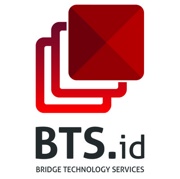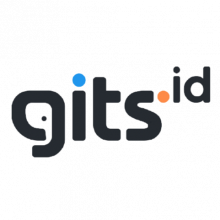
There are 10 Companies in Indonesia
that provide Angular Development Services!
By 2025, Indonesia’s digital economy is expected to contribute USD 150 billion to the GDP. To achieve the target, the Indonesian government is currently implementing a massive infrastructure development.
Discover Top IT Companies in Indonesia specialized in Angular and other related services. Find the best IT service providers for your projects.
Angular (formerly AngularJS) is a popular open-source web application framework maintained by Google and a community of developers. It's used for building dynamic, single-page web applications (SPAs) and web-based applications in general. Angular provides a structured and organized way to create complex web applications by extending HTML with additional features and enabling the development of interactive, responsive, and maintainable front-end web interfaces.
Handpicked companies • No obligation to hire • 100% risk-free
Featured Companies in Indonesia
This month, the following Angular Development companies managed to provide an outstanding service and support. It's worth taking a look.
Experienced more than 14 years helping enterprise & global companies in custom software development, mobile apps, and web apps.
At Wavespace, we specialize in taking ideas from concept to company.
Suova empowers businesses with scalable, high-quality custom software engineered for growth and performance.
Explore Top Angular Development Companies in Indonesia
Emveep is AI Startup Development Company based in Asia that has been serving startups from the AU, Singapore, US, UK, & Europe more than 15 years.
Investidea provides a comprehensive IT Outsourcing service with the fastest minimum viable product (MVP) delivery time!
From IT Talent Development to Global IT Solutions

Bukit Duri, Indonesia Head office in: Malaysia
Having rich experience of 4+ years in mobile, web and software solution development, Team4solution is a leading IT company globally. Our team is not o...
PT Intersolusi Teknologi Asia also known as Bridge Technology Services. We have fight few years in Software Development. For many years we have also f...
Services:
Get it simple with our mobile solution.
Filter Angular Development Companies in Indonesia by Cities
Find the right tech company near you or from a specific city. Some of the best companies might be located in smaller cities.
Find more Angular Development companies around the world
TechBehemoths is the world's most advanced and user-friendly platform to match IT Companies with real clients without hustle.
The ICT Industry in Indonesia: Data & Insights
By 2025, Indonesia’s digital economy is expected to contribute USD 150 billion to the GDP. To achieve the target, the Indonesian government is currently implementing a massive infrastructure development.
As part of the digital transformation, the government has launched several national programs, among others are Go Digital Vision 2020, e-smart IKM, and 100 Smart City Movement. These programs aim to develop local startups, support small to medium enterprises (SMEs) as well, and prepare and embrace the Internet of Things (IoT).
Why Work With Indonesian IT Companies
What makes Indonesian IT companies and web agencies attractive is the way young professionals have managed to adapt to new technologies and implement global business trends in their own business model.
Currently, updating the company’s system is one of the factors that influence the success of a business. The more sophisticated the company’s technology, the easier the transaction process and the faster the time of its request process. This has an attraction that has become a trend in the Indonesian market nowadays.
What You Should Pay Attention to When Working With Indonesian IT Companies
Even though the government invests in skilled professionals and the development of IT education, most of the IT companies and creative agencies from Indonesia lack experience and are predisposed to inefficient communication and project management. This can be challenging for potential foreign customers of the sector, but it contributes to the development of the Indonesian business environment.
How Reliable Are Indonesian IT Companies
Despite e-commerce and fintech developments, Indonesia had the highest percentage of Cybercrime of malware attacks in the world (China was second with 21.26 percent). Malware is a particular problem in Indonesia, along with spam and other types of email-based scams. But what Indonesian IT companies made was transforming the challenge into opportunities, and developing the cybersecurity infrastructure, making the country well-known on the global stage as a trustworthy source of professionals and companies that can handle this type of threat, according to the Visiglobal online portal.
How Does the Indonesian IT Infrastructure Relate to the Region?
According to the Swiss Global Enterprise report from 2019, most of the contributors to Indonesia’s ICT import are from China and the ASEAN neighbors, which is still available for 2025. Indonesia has received foreign investments and witnessed several joint ventures between foreign and local companies.
However, based on another report from the Australian Trade Commission, the Indonesian ICT market features intense competition from Korean, Chinese, and the United States players.
What is Angular and what are its benefits for your projects?
Angular (formerly AngularJS) is a popular open-source web application framework maintained by Google and a community of developers. It's used for building dynamic, single-page web applications (SPAs) and web-based applications in general. Angular provides a structured and organized way to create complex web applications by extending HTML with additional features and enabling the development of interactive, responsive, and maintainable front-end web interfaces. Here are some key aspects and concepts of Angular:
-
Component-Based Architecture
-
Templates
-
Directives
-
Dependency Injection
-
Services
-
Routing
-
Observable and RxJS
-
Modules
-
Testing
-
Cross-Platform
Angular's structured approach, strong tooling, and vibrant ecosystem of libraries and extensions make it a powerful framework for building modern web applications. It is particularly well-suited for large and complex projects where maintainability and scalability are crucial.
Companies may choose Angular over other front-end frameworks for their projects for a variety of reasons, depending on their specific needs and priorities.
-
Google Backing: Angular is developed and maintained by Google. This association often gives companies confidence in its long-term support, stability, and continuous improvement. Google's involvement is seen as a sign of reliability and commitment to the framework.
-
Mature and Established: Angular has been around for a while and has a strong track record of being used successfully in large-scale enterprise projects. It has a well-defined architecture and best practices, which can be beneficial for maintaining and scaling applications over time.
-
TypeScript Support: Angular is built with TypeScript, a statically-typed superset of JavaScript. TypeScript provides better tooling, code maintainability, and catches errors at compile time, which can reduce bugs and enhance code quality, making it attractive to companies that prioritize robust code.
-
Full-Featured Framework: Angular provides a comprehensive set of tools, libraries, and features out of the box, including routing, form handling, HTTP client, and more. This can save development time and effort compared to integrating multiple third-party libraries in other frameworks.
-
Two-Way Data Binding: Angular offers powerful two-way data binding, which allows for automatic synchronization between the data model and the view. This feature can make it easier to develop interactive and responsive user interfaces.
-
Large and Active Community: Angular has a large and active community of developers and a wealth of resources, including documentation, tutorials, and third-party libraries. This can be beneficial for finding solutions to common problems and getting support when needed.
-
Enterprise-Ready: Angular provides features like dependency injection, modularity through modules, and a strong emphasis on testability. These characteristics are well-suited for building robust and maintainable enterprise-level applications.
-
Strict Coding Standards: Angular enforces a set of coding standards and best practices, which can lead to more consistent and readable code. This can be important for companies with multiple developers working on the same codebase.
-
Cross-Platform Development: Angular can be used for building both web and mobile applications. Companies looking to develop applications for multiple platforms may choose Angular for its ability to share code between web and mobile apps using technologies like NativeScript or Ionic.
-
Integration with Backend Technologies: Angular can easily integrate with various backend technologies and APIs. This makes it suitable for projects where the front end needs to communicate with different types of server-side applications.
-
Security Features: Angular provides built-in security mechanisms to help prevent common web vulnerabilities like Cross-Site Scripting (XSS) and Cross-Site Request Forgery (CSRF). This can be crucial for projects with high security requirements.
-
Ecosystem and Tooling: Angular has a rich ecosystem of tools, extensions, and IDE support, including Angular CLI for project setup and management. This can streamline development workflows and improve productivity.
Ultimately, the choice of Angular or any other framework depends on the specific project requirements, the development team's expertise, and the company's long-term goals. Companies evaluate various factors to determine which framework aligns best with their needs, resources, and priorities.








